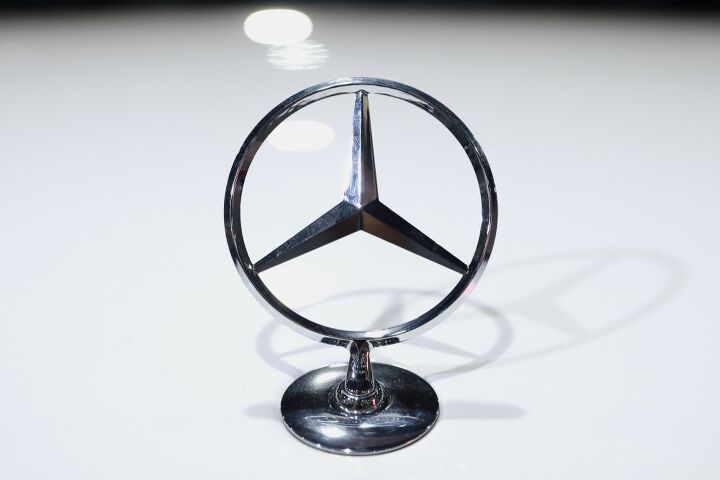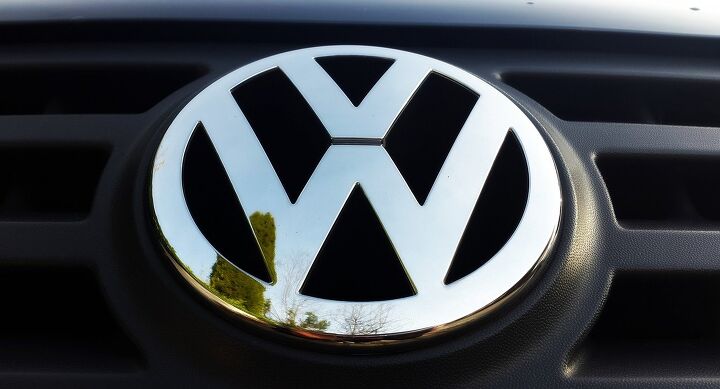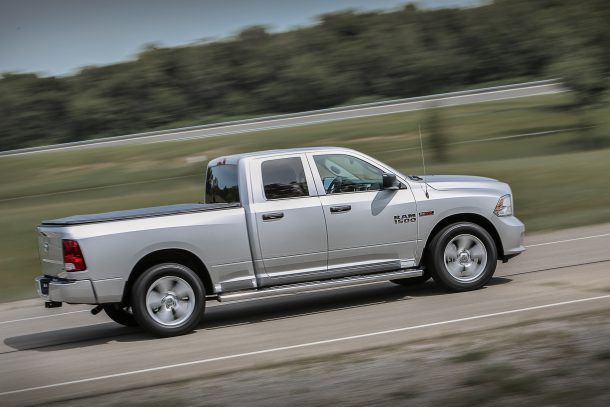#DefeatDevice
Former Audi Managers Indicted in Dieselgate Case
On Thursday, Munich-based prosecutors announced the indictment of four more ex-Audi managers in relation to Volkswagen Group’s infamous diesel emission scandal. This follows the charges brought against former CEO Rupert Stadler and a handful of Audi staffers in 2018.
The latest indictment involves three former board members and one department head who has since retired. Prosecutors stated the alleged crimes relate to 434,420 cars manufactured by VW Group brands which we already know where sold with trick software designed to circumvent emissions testing, according to Reuters and German outlet Handelsblatt. However, the grand total of vehicles suspected to be in violation of regulatory law are suggested to be closer to 11 million globally.
Dastardly Diesels: Suzuki and Jeep Busted Breaking EU Emissions Rules
While Volkswagen remains the industrial face of diesel-related scandals, it’s just one of many automakers fingered for emissions cheating. VW was simply the first to be dragged through the coals, and its great shame encouraged governments around the world to launch investigations into whether or not other manufacturers are guilty of similarly uncouth behavior.
Dutch road authority RDW has a problem with diesel models produced by Jeep and Suzuki. While Europe has fallen out of love with the diesel of late, the accusations are a little worse than simply falling to adhere to EU emission standards. RDW says the two automakers used “prohibited emissions strategies” that allowed vehicles to emit higher levels of nitrogen oxide (NOx) on the road than during testing conditions.
What Ever Happened to Mercedes' Dieselgate?
After Volkswagen admitted to equipping some of its diesel-powered autos with illegal software designed to circumvent emissions testing in 2015, every automaker on the planet fell under enhanced scrutiny. By 2016, U.S. regulators were checking on Mercedes-parent Daimler to see if there were any pollutant-related shenanigans taking place behind the scenes. Germany followed suit shortly thereafter, launching its own investigation.
However, with no local updates on the matter, it was presumed Daimler was in the clear — except Germany did find evidence of corporate misdeeds and the company recalled 3 million vehicles in 2017. At the time, we figured the situation would swiftly bleed over into the United States and help wrap things up. But it hasn’t yet and The Detroit News took time this month to ponder what’s taking federal regulators so long.
Germany Engineering Firm Pleads Guilty to Involvement in VW Emissions Scandal
IAV GmbH, the German engineering company co-owned by Volkswagen Group, plead guilty to a felony count of conspiracy in a U.S. District Court on Friday, to the surprise of absolutely no one. Last month, authorities said the firm had already agreed to a guilty plea and multi-million-dollar fine for its role in helping Volkswagen Group develop software that could effectively help cars falsify emissions test results.
That makes the courtroom officiation little more than a formality. While the court wants to conducts a probationary investigation, effectively delaying sentencing until May 22nd, there is little doubt what the final penalty will be — $35 million and two years of operation under the supervision of a court-appointed monitor.
Volkswagen's Dieselgate Still Going Strong in Europe
While Volkswagen’s diesel emission fiasco has died down in the United States, costing the automaker billions before going achieving dormancy, the legal fires burn brightly in Europe. On November 14th, a German court ruled that VW must reimburse the owner of a Golf the full price of the vehicle from when it was purchased in 2012. The decision sets a new precedent, possibly opening the firm to additional expenses via buybacks.
However, Volkswagen AG has claimed around 9,000 judgements have already been made relating to the diesel emissions scandal — most of which resulted in customer complaints being unsupported by district and higher courts. “In our opinion, there is no legal basis for customer complaints [in Europe]. Customers have suffered neither losses nor damages. The vehicles are safe and roadworthy,” VW said.
Volkswagen Group Fined an Additional $1.18 Billion for Emissions Cheating, More Suspects Emerge at Audi
In 2017, the U.S. hit Volkswagen with a $4.3 billion fine as part of the company’s plea agreement for violating of the Clean Air Act. It was a rough ride for the automaker, caught using defeat devices on its diesel engines, but it brought the scandal more or less to a close in America.
An ocean away, it seemed nothing would come of the endless raids by German authorities on VW-owned facilities. Apparently, the wheels of justice just turn a little slower in Europe, as the automaker was fined 1 billion euros on Wednesday. It’s one of the largest financial penalties ever imposed on a company by German authorities.
Extensive Probing Continues In Germany
While companies are often found guilty of sketchy and illicit behavior, it’s becoming increasingly difficult not to feel some measure of sympathy for German automakers. The same goes for the government officials whose job it is to repeatedly raid the homes and offices of people employed by those manufacturers. Once gain, German prosecutors have searched both Volkswagen and BMW over diesel-related shenanigans.
Volkswagen saw 13 of its offices raided in Wolfsburg throughout the month of March. Braunschweig-based authorities seized physical and digital files in the hopes of catching the automaker in a lie from 2015. At the time, VW claimed an in-house investigation found it had understated fuel consumption and carbon dioxide emissions on no more than 36,000 vehicles. Considering the diesel emissions scandal affected far more vehicle than this, as well as the company’s much higher earlier estimate, prosecutors hope to catch the company out.
Meanwhile, BMW saw its facilities searched over suspicions that it employed a defeat device to circumvent diesel emission testing. The automaker said authorities were looking into “erroneously allocated” software on the BMW 750d and BMW M550d.
Volkswagen's Diesel Whistleblower Identified in New Book
While it wasn’t quite on par with the drama of a mob trail, the criminal case of Volkswagen’s diesel emissions scandal possesses a lot of similarities. A break in the case, police raids, a powerful family, an unwillingness to cooperate with authorities, and an informant that made it all possible. But just who was the Henry Hill to Volkswagen’s Lucchese crime family?
According to a new book on the subject, written by New York Times reporter Jack Ewing, VW’s Engineering and Environmental Office head Stuart Johnson was the primary contact for the United States’ regulatory agencies. Johnson was on the front lines of the scandal and was among the first managers the EPA publicly reached out to in September of 2015, but it seems that may have been a ploy not to blow his cover — he had already spoken to the California Air Resources Board a month earlier.
FCA Slammed With Twin Lawsuits While Waiting on EPA Investigation
The Environmental Protection Agency alleged last week Fiat Chrysler Automobiles had installed undisclosed emissions software in 104,000 of its diesel vehicles — issuing the company a notice of violation for its Jeep Grand Cherokee and Ram 1500.
While the EPA continues its investigation into whether or not FCA will become the next Volkswagen, Canadian law firm Sotos LLP and America’s Heninger Garrison Davis LLC have coincidentally teamed-up to launch class action lawsuits on behalf of consumers.
Indictment: Volkswagen Updated Emissions Cheat in 2014, Hid It From EPA and CARB
On September 9th, Volkswagen engineer James Liang pleaded guilty after being indicted on a variety of crimes related to VW’s deliberate use of a software routine that cheated on government diesel emissions testing.
Until his guilty plea was entered in United States District Court in Detroit, Liang’s indictment was under seal. Now that it has been made public ( full PDF version here), we know more details about VW’s cheat and it turns out that the German automaker even updated the original software cheat — apparently to work more effectively — with a patch delivered in the guise of fixing emissions related warranty claims.
As the scandal was breaking, Volkswagen also deliberately supplied government agencies with false data to make the problem appear to be the result of a mechanical malfunction, not a defeat device.
GM Under Fire in Germany; Company Denies Installing 'Defeat Devices'
Volkswagen must be enjoying watching its rival squirm on the end of the same hook.
German regulators have singled out GM’s Opel division over carbon dioxide emissions from some of its vehicles, but the automaker says it isn’t in the wrong.
Facing accusations that it used a ‘defeat device’ to shut off emissions controls, Opel must now submit information to an investigating committee. During a meeting yesterday, Opel executives admitted that the popular Zafira model has software that shuts down exhaust treatment systems at high speeds and altitudes.
Nissan Gets a Diesel Emissions Scandal of Its Very Own
It’s nowhere near the scale of the Volkswagen debacle, but Nissan is in hot water with the South Korean government over dodgy emissions from its diesel SUV.
That country’s environment ministry accuses Nissan of using a “defeat device” to disable the emissions controls on its UK-built Qashqai SUV, Automotive News reports.
Volkswagen Waited Six Years to Use 'Defeat Device': Report
The device Volkswagen used to cheat on emissions tests sat on a shelf for years before the automaker employed it on its diesel-powered vehicles.
Audi engineers created the software in 1999, but it was not immediately used by Volkswagen, according to the German newspaper Handelsblatt (via Reuters).
Volkswagen Lawyer: Automaker May Buy Back Unfixable Cars
A lawyer for Volkswagen said in court that the automaker would buy back cars that it can’t fix in time, the first admission from the company that some of its cars may not be fixable, according to the New York Times.
Volkswagen lawyer Robert Giuffra told a court last week during hearings related to the class-action lawsuits facing the automaker that the company hadn’t determined how many cars would be affected.
“We might have to do a buyback or some sort of a solution like that for some subset of the vehicles, but that hasn’t been determined yet,” Giuffra said according to the report.
Volkswagen Still Talking Technicalities in Definition of 'Cheat'
Last we heard, Volkswagen’s small loophole that it could technically skate through on the definition of “cheating” in Europe was fairly well closed.
Last week, Volkswagen’s chief in the UK asserted in a letter to British Parliament that the company may not have have technically cheated in Europe.
“Volkswagen accepts that a defeat device was used in the USA in certain models, in the context of the very different regulatory framework and factual circumstances there,” Paul Willis wrote in a December letter ( via New York Times). “However we do not think that it is possible to make the same definitive legal determination in relation to the software that was fitted to those differently configured vehicles in the UK and EU.” (Emphasis ours.)
Holy shit. Really?


























Recent Comments